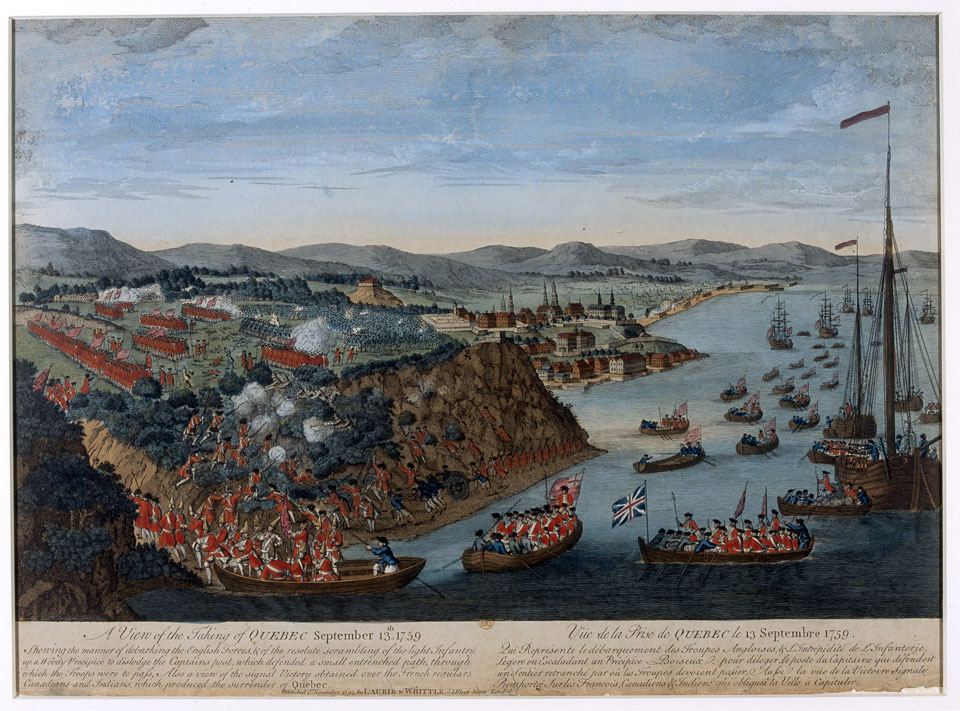
Online Collection
« Prev - 1 of 1 results - Next »
View of the Taking of Quebec, 13 September 1759
Coloured engraving, artist unknown, published by Laurie and Whittle, 53 Fleet Street, London, 1 November 1797.
Quebec occupied an almost impregnable position on the St Lawrence river. It was defended by the French general, the Marquis de Montcalm, with a large garrison.
In the early hours of 13 September 1759, General James Wolfe landed upriver of Quebec with 4,500 men. Climbing a steep cliff path, Wolfe's forces reached the 'Heights of Abraham', a plateau behind Quebec. Later that morning, the French came out to meet them and, in the battle which followed, both Montcalm and Wolfe were mortally wounded. The French retreated into the town, which surrendered on 18 September. The fall of Quebec led to the conquest of Canada by Britain and was one of the greatest victories of the Seven Years War (1756-1763).
NAM Accession Number
NAM. 1971-02-33-314-1
Copyright/Ownership
National Army Museum, Out of Copyright
Location
National Army Museum, Global Role gallery
Object URL
https://collection.nam.ac.uk/detail.php?acc=1971-02-33-314-1

